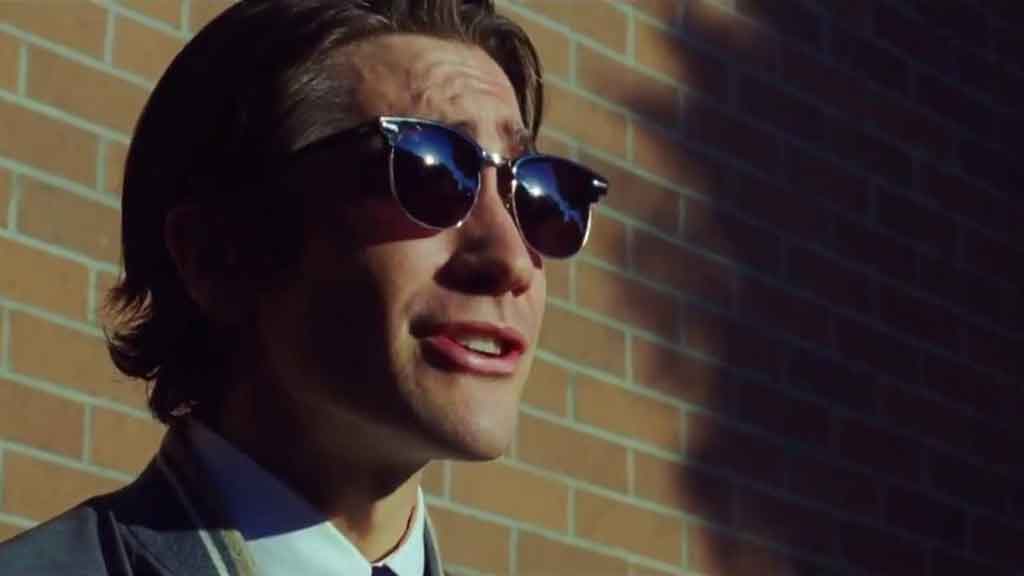By Jeremy Hannaford (Contributor) – Email
Print Edition: November 5, 2014

Nightcrawler is a dark and frightening look at one sociopathic man’s determined quest to achieve the American Dream.
The film opens with several establishing shots of the L.A. nightlife with particular focus on areas in shadow. These shadows represent the manifested fear of secluded suburban families, which are the targets of the news media and Louis Bloom (Jake Gyllenhaal)’s domain of work.
Louis Bloom makes his way into the journalism industry when all avenues of “normal” employment are rejected due to his awkward personality. He by chance comes across an abrasive crew of film journalists, and is inspired to pursue this field of work.
Gyllenhaal brings a truly original performance to Bloom. it’s an unusual choice of character for the actor, as he evolves into an emotional snake who hunts for the worst in people to achieve the best for his business. Every scene with Gyllenhaal is as uncomfortable and awkward as his character is with his totally inept social skills. Everything down to his dialogue diverges from social norms; his positive business quips sound like they are right out of an overly zealous training video. His views of his “business” are far-fetched, but relevant to his quest for the American Dream.
But what begins as his weakness becomes a factor in his success in the news industry. His character’s psychopathic qualities enable him to forgo the normal emotional reaction to violence and death to capture what he finds to be beautiful and important news coverage. His relish for making death primetime news is reminiscent of the concept of David Cronenberg’s Crash; both films relate to unusual and extreme human conditions, and portray how certain people thrive on them in order to rise in the social order.
Director Dan Gilroy creates a character-driven story that makes the protagonist extremely difficult to favour. He inadvertently turns the audience into an observer just like Bloom. It is due to his lack of connection with humanity that you become infatuated with his interactions. In one situation where his colleague Rick comments on how Bloom doesn’t understand people, Bloom counters, “Maybe it isn’t that I don’t understand people but that I don’t like them.” His view of humanity and unrelenting drive for success shadow elements of Daniel Day Lewis’s oil tycoon character from There Will Be Blood, but Gyllenhaal puts a modern twist on it. His actions are always intriguing, no matter how unemotional or unnerving they may be.
Nightcrawler is Dan Gilroy’s depiction of a psychopath driving around Los Angeles at night — but instead of a knife or a gun, his weapon is a camera, and the images he captures are his euphoria. The film is about the nature of over-sensationalism, but doesn’t dip its hand into it. Instead it keeps itself controlled but tense, especially during the final climactic car chase scene. Nightcrawler is also a great film for forgoing conventional protagonist elements, instead creating a character that you hate but still want to observe. Powered by one of the best performances in Gyllenhaal’s career, Nightcrawler will certainly be a film you won’t forget.


